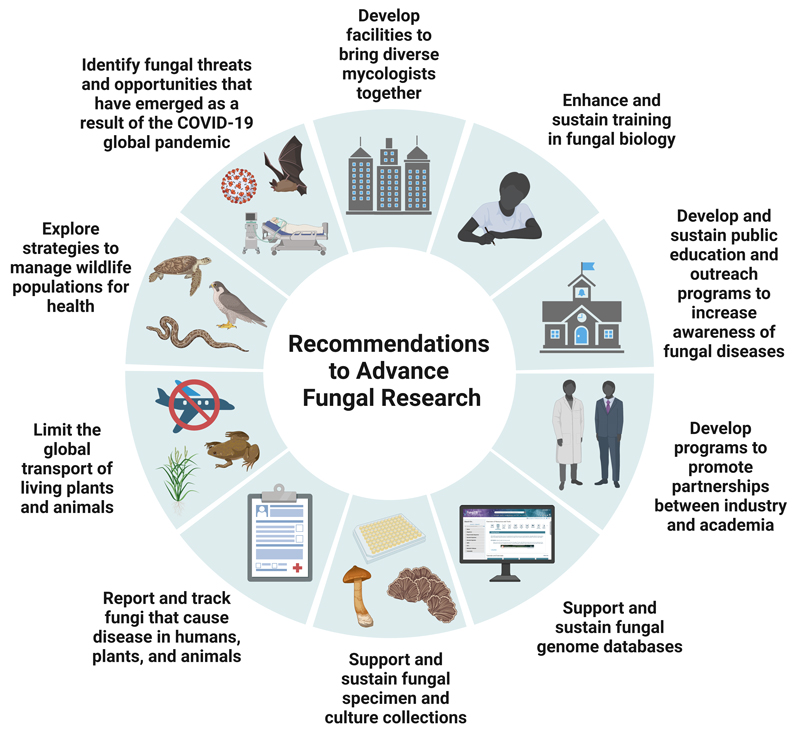By: CIFAR
19 Oct, 2022

These organisms form beneficial symbioses with 90% of all land plants and are key contributors to important ecological processes like nutrient recycling and atmospheric carbon capture. Moreover, fungi have been harnessed to produce life-saving therapies, like antibiotic penicillin, and for their myriad of applications in biofuel production, fermentation, food manufacturing, and bioremediation.
Despite the many ways fungi benefit ecosystems and society, they also cause devastating disease in humans, plants, and animals. Infections by human fungal pathogens result in at least as many deaths per year as malaria and tuberculosis, while fungi that infect wildlife and plants cause devastating losses in biodiversity and staple crops that feed billions. Although fungi clearly have an immense impact on global health, agriculture, biodiversity, ecology, manufacturing, and biomedical research, these organisms are often overlooked.
In November 2021, CIFAR and the Burroughs Wellcome Fund held a workshop to help chart the future challenges and opportunities presented by the fungal kingdom. Attended by members of the CIFAR Fungal Kingdom: Threats & Opportunities research program and leading experts on fungal biology from academia and industry, participants met to strategize on:
Additionally, participants synthesized a list of recommendations to accelerate the development of novel strategies to combat the threats posed by fungi and harness their extraordinary potential, which are summarized below.

Figure reproduced from Case et al. 2022.
To read the full report please visit G3.